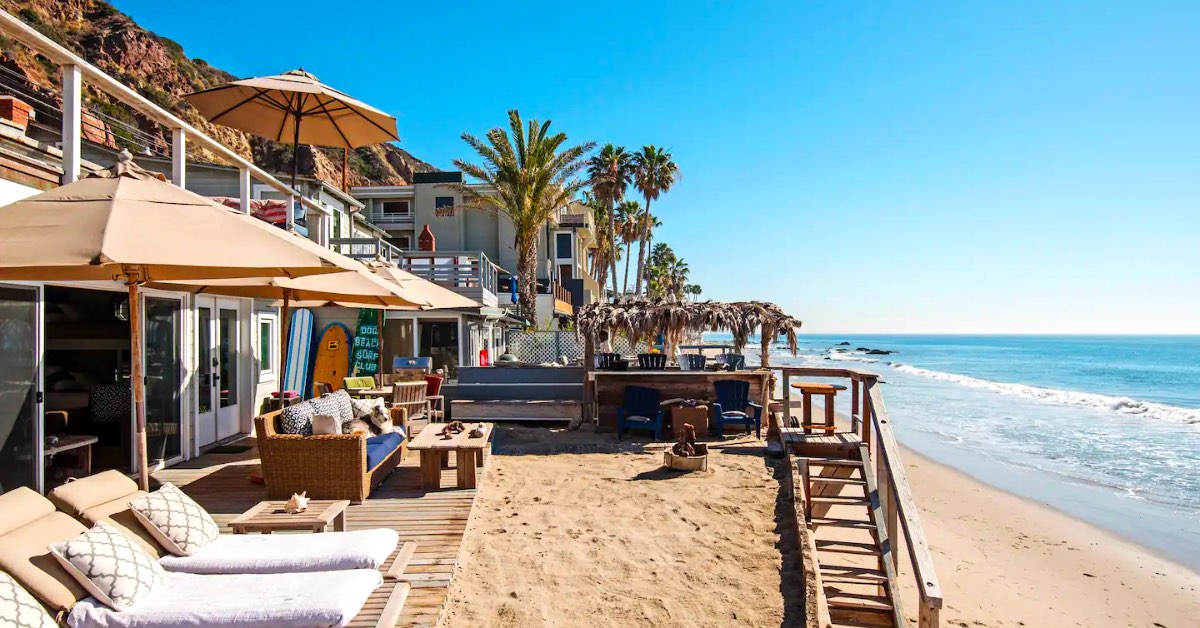Many vacation rental owners spend a significant amount of time contemplating whether a security deposit or damage insurance is the best choice for their company.
Do you presently need a damage deposit from your vacation rental guests? Do you want to forego this precaution and just trust that they will be trustworthy and not create any difficulties or harm to your property?
In the latter scenario, it could be worth reconsidering your decision. There are several benefits to collecting a damage deposit from visitors to your vacation rental.
Not only can you choose the amount to charge based on the characteristics of your property and house rules, but it may also make visitors feel more responsible for your home throughout their stay.
There are certain recommended practices to follow when it comes to collecting, managing, and repaying damage deposits. Read on to learn our top rental damage deposit dos and don’ts!
What should you do with your rental damage deposit:
1. In your rental agreement, provide extremely specific home rules.
Damage control begins with a precise set of house rules for your vacation rental that clearly state how visitors should behave on your property and what is banned.
It’s critical to include all of your home rules, as well as any infractions that might result in a whole or partial loss of your damage deposit, in your rental agreement.
It’s also a good idea to go through the terms of the damage deposit once again. Why do you require a damage deposit in the first place? Which damages would result in a guest’s entitlement to a refund being revoked? When and how will the damage deposit be returned?
The more information you can supply in this scenario, the better. It will assist in lessening the likelihood of guest infractions and inform them of the condition in which they are expected to depart your property after their stay.
2. Calculate the deposit amount using your weekly rates and amenities.
You may normally determine the amount of your damage deposit in one of two ways.
Using a specific sum (such as $250) for the vacation rental damage deposit is conventional practice for many property owners. Regardless of the guest’s stay duration, this figure stays constant. It’s also often determined by the cost and quality of the vacation rental’s facilities.
On the other hand, others determine the suitable deposit amount using a percentage (for example, 10% of the entire rental fee).
It might be tough to choose the latter since it fluctuates based on the booking date and length of stay. As a matter of thumb, if the percentage is larger, this is the amount you should consider charging your visitors.
3. Examine your damage deposit payment method’s deadlines and limits.
You could, of course, take the damage deposit in cash when your visitors arrive. On the other hand, this approach is impracticable for individuals who do not physically greet their visitors or who have automated the check-in procedure.
Furthermore, if your visitors pay the damage deposit with their reservation, you will certainly avoid some difficult circumstances.
If you don’t want to pay the security deposit in cash when you arrive, you’ll certainly utilize the charge and return option or pre-authorization. Whatever option you select, be sure you’re aware of the potential expenses and consequences.
Using charge and refund, for example, may result in two transaction costs. When employing pre-authorization procedures, however, there may be time constraints.
4. Deal with the damage deposit as soon as possible.
Regardless of the technique, add a damage deposit to your vacation rental booking invoice.
This guarantees that the payment process is properly recorded, particularly important when dealing with cash payments.
Otherwise, cashing the cheque or charging the credit card as quickly as feasible is critical. This eliminates the potential of a bounced check or inaccurate bank card information and allows you to ask them to confirm their information once again.
5. Establish a positive working connection with the cleaning workers.
Guests may not feel obligated to report or minimize unintentional damages that occur on your property in certain instances.
That’s why it’s crucial to cultivate a positive, tight connection with whoever is in charge of your home’s cleaning and upkeep. They are, after all, your on-site eyes and ears, as well as the first individuals to enter your property after the visitors have left.
They may do a brief inventory after each guest departs, ensuring that any visitor damage or unintentional breakage is recognized and addressed promptly.
6. Be aware of any existing defects (and repair them!)
Your property may have already sustained damage that you won’t be able to restore before the next round of visitors arrives. Accidents may, of course, occur at any time.
In such circumstances, the best policy is to be honest. Inform them of what occurred before their arrival and compensate them with a goodwill token.
Keep the receipts for whatever you buy, whether it’s a bottle of wine, groceries, or a dinner at your favorite local restaurant, and deduct it from the previous visitors’ damage deposit.
This kind of gesture must be incorporated into your rental agreement and signed by both parties to be carried out.
7. Allow your visitors to pay the damage deposit within a certain time frame.
Allow your visitors enough time to pay the security deposit. If they pay by check, it should take three to five business days for you to receive and process the payment.
Those paying by credit card, on the other hand, can expect their transfer to take just 24-48 hours to complete.
Whenever it comes to damaged deposits, here’s what you shouldn’t do:
1. Ignore the damage deposit refund.
Forgetting to return your visitors’ damage deposit can harm your chances of earning a favorable review.
Most likely, this will have the opposite effect, and you’ll have to prepare a response to a poor review from a very disgruntled tourist.
Check your state’s local regulations for the precise number of days you have to reimburse the deposit. In most cases, the deadline is set between 14 and 45 days.
Also, remember that keeping the deposit without a good reason is prohibited in every state.
2. Use damage deposits to supplement your rental revenue.
These deposits have just one purpose: to cover the cost of repairs in the case of significant damage.
You must not take full advantage of this as a vacation rental owner by misusing the damage deposit for extra funds.
Of course, certain objects in your house, such as tableware, cups, and glasses, are more prone to shattering by mistake. On the other hand, minor damages should be readily fixed without leaving visitors with a large fee.
3. Keep a security deposit just to spite you.
As the property owner, you must repay the damage deposit to your visitors upon their departure or soon afterward.
You’ll need a legitimate bill or receipt for the service done or the item replaced for each repair of guest-caused damage.
If you can’t present this receipt, you don’t have any evidence of damage, and you can’t charge your visitors for it. So be sure to keep on track with your business and never take full advantage of your client’s trust.
4. Ignore the significance of photographic evidence
Remember to document or film the damage if you suspect a visitor (or group of guests) has damaged your property.
If the visitor attempts to deny their involvement, video and picture evidence are very important and beneficial.
Make a digital camera accessible to your cleaning crew as well, so they can keep an eye on your vacation rental and document any irregularities. For this reason, you may even place a camera in a closed closet at your holiday rental.
5. Be concerned if the amount of damage caused exceeds the damage deposit amount.
While most owners go years without dealing with difficult tenants, there are a few occurrences and so-called Airbnb horror tales.
In the worst-case situation, the damage to your property will be more expensive to restore than the damage deposit would cover. However, don’t get too worked up about this situation; some options are still accessible to you.
First and foremost, you may try to recoup the funds by communicating with the visitor one-on-one. This is particularly helpful if the visitor has been truthful and reported the harm directly to you. A face-to-face conversation may frequently settle difficulties more quickly than imagined.
The second step is to have a follow-up conversation, which typically leads to a straightforward solution for both sides since you now know the visitor feels guilty and responsible.
Otherwise, you might take legal action against the renters as the last option. Be cautious since this may occasionally result in higher costs in the long term.
On the other hand, many small claims courts will take on these sorts of lawsuits. Before dealing with any legal concerns, contacting a reputable attorney is usually a good idea.
What should I take away?
Damage deposits are one of the most efficient ways to guarantee that your vacation rental is worry-free and in top shape.
It will offer you peace of mind, knowing that any possible damages can be immediately repaired.
Damage deposits, although they seem off to some guests on short trips, give an extra layer of protection to your existing vacation rental insurance. It also screens out those who have shady intentions ahead of time.
You shouldn’t have any problems setting up a damage deposit for your home as long as you communicate properly with visitors and promise them that their money will be repaid quickly (assuming they don’t cause damage and follow the rental agreement conditions).









